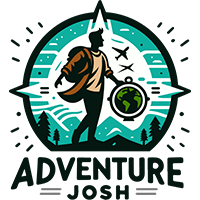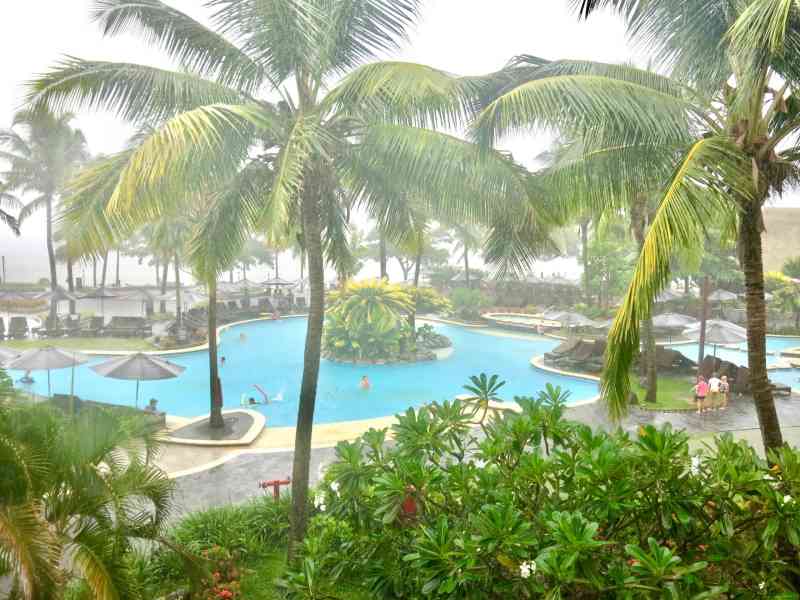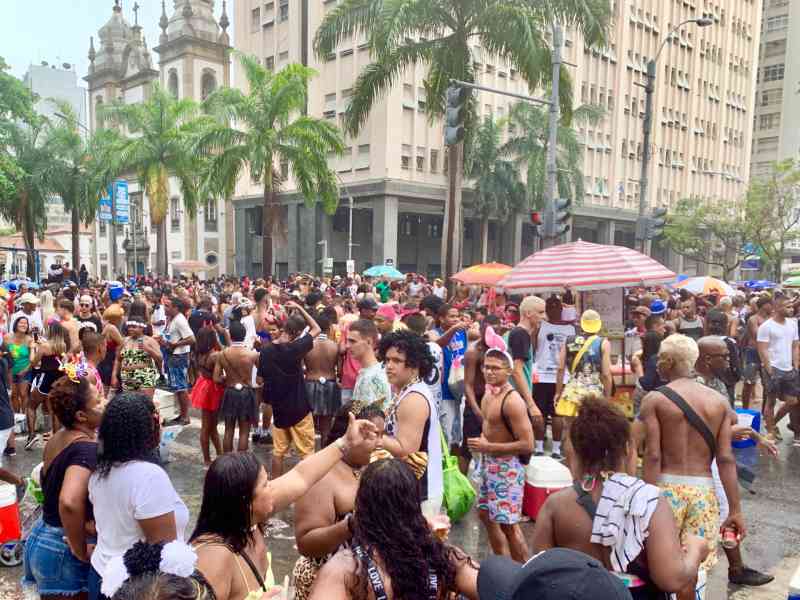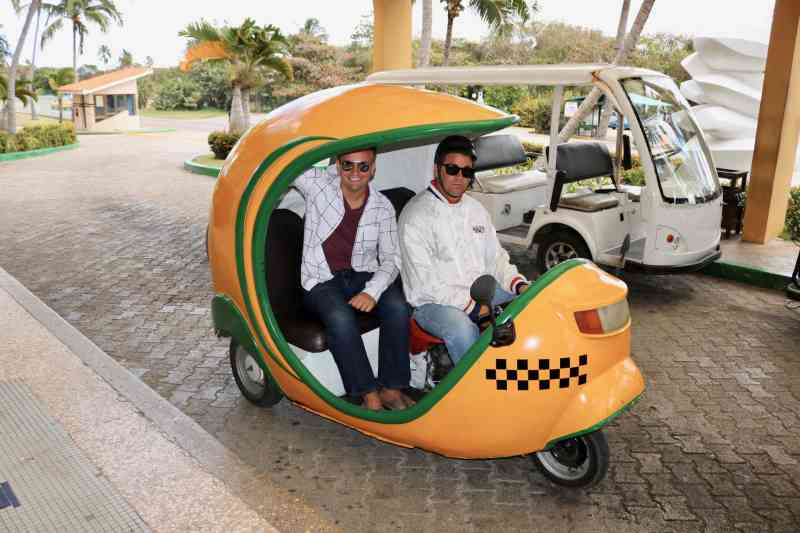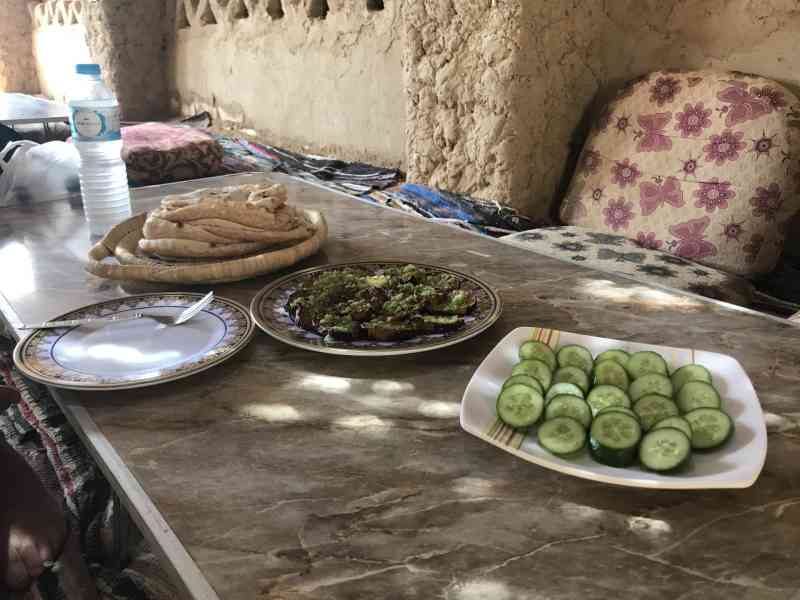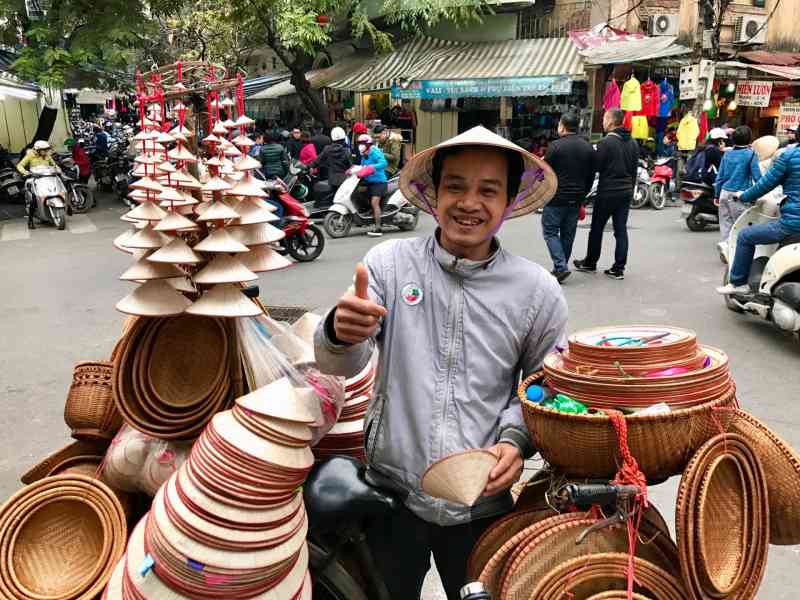The 28 Travel Safety Basics
Where to begin? Travelling internationally, even to the safest countries, can be potentially dangerous if done without the proper precautions. We all hear of the worst-case scenarios on the news and the extreme warnings from our home country’s travel advisory pages.
After numerous years of travel, I’ve never had a major incident yet. We never hear about the countless good days that go by without issue or the millions of tourists that have trips that aren’t newsworthy. Over obsessing over safety can severely impact the enjoyment of your trip!
Being well informed and prepared is your best defense for staying safe. Always remain calm, but cautious. Believe in the best intentions of people, while staying ever aware of the few rotten apples.
- Buy Travel Insurance
- Vaccinations & Basic Travel Medications
- Register with Your Embassy
- Check Travel Advisories
- Inform Friends or Family
- Share Your Live Location
- Leave Non-Essentials at the Hotel
- Muggings, Pick-Pocketing and Theft
- ATM Safety
- Money Handling & Bargaining
- Protect Your Data
- Street Safety & Intuition
- Photography
- Taxis, Uber and Vehicle Rentals
- Language Basics
- Google Maps
- Have Copies of Important Documents
- Secure Your Hotel Room
- Be Wary of Social Media / Stay Private
- Food & Water
- Alcohol & Drugs
- Talking to Locals
- Driving & Pedestrianism
- Power
- Emergency Information
- Weather
- Attire & Cultural Customs
- Wildlife
Buy Travel Insurance
You don’t think you’ll need it, until you do. With certain travel credit cards, they may automatically have some coverages for the holder if the purchases were made with that card. This may be for medical, vehicle, lost luggage or even cancellation. Treat this as a perk and use it as a last resort only; it may come with unexpected catches.
Buy third-party travel insurance every time. While it may be more expensive, it could save hundreds of thousands of dollars if things take a turn for the worse. Be cautious of deductibles and limits on duration or dollar values. Read your policy thoroughly. It may even be necessary to call the company in advance prior to receiving any treatment abroad. BlueCross is a personal favourite of mine.
Vaccinations & Basic Travel Medications
Some crazies out there like to risk it, but you’ve just spent thousands of dollars on your vacation. Don’t risk it by falling ill. Cancellation insurance is often very pricey for longer trips, and the first thing travellers will choose to opt-out of. Be proactive and preventative to prevent relying on it.
Bookings at a travel clinic for vaccinations should be done weeks or months in advance as there are often lengthy delays. They can also be very costly, but are worth the fee. Many immunizations will either last 10 years or a lifetime. Yellow Fever can be lethal and is easily transmitted by mosquitoes. Some countries even require proof of Yellow Fever vaccinations or others prior to entry.
In addition to vaccinations, grab Ibuprofen, altitude sickness pills, and traveller’s diarrhoea medication. Without the need for a huge first-aid kit, bring essentials such as bandaids, polysporin, sunscreen, scissors, nail clippers, tweezers, an antihistamine, and a burn kit in a zip lock bag. It will come in handier than you realize and save hunting for a pharmacy or convenience store which may not be nearby.
Register with Your Embassy
This can often be done online in the matter of a few minutes. In a worst case scenario the authorities will know your anticipated travel dates and locations.
Check Travel Advisories
Whether it’s an outbreak of measles, extreme weather, or it’s the threat of a terrorist attack, your home country will likely have a web site with travel advisories. It will often include commentary on everything from health risks and petty theft to major criminal activity.
Inform Friends or Family
Leave a complete copy of your travel itinerary with a friend or family member back home. This should not only include your hotel and activity bookings, but also a copy of your travel insurance documents. Arrange regular intervals at which you will check in with them to confirm your safety and location while abroad.
Additionally, have an obscure code word or phrase in the unlikely event you need to covertly convey things are not “OK” and you don’t want to tip off those around you. Perhaps this is something as simple as asking, “Are you still planning on going to grandma’s cottage this summer?” or “Are the thunderstorms still really bad back home?” This will be the cue to execute emergency planning on their end.
Share Your Live Location
Choose a few trusted contacts, and turn on the ability to share your live location (iPhone) “indefinitely.” And, of course, don’t forget to turn on “Find my iPhone” as well. On Android there’s likely a similar feature. If not, use the live location sharing feature in the app “WhatsApp.”
The location of the receiving person will not be shared with you, but they will be able to lookup your current location anytime live on a map. This only works if you have cellular or WiFi connectivity.
Leave Non-Essentials at the Hotel
After checking into your hotel, immediately put your passport, extra cash, and a second backup credit card, into the safe. The only cash you should carry with you is what you anticipate spending on expenses for the day.
If you don’t trust the safe (as they can sometimes be broken into) hide these valuables in a creative location. I recommend using the same location at every hotel so that it becomes routine at check-out. This way, you avoid accidentally leaving something behind!
If for any reason you need to carry your passport with you, or if you have not checked into your hotel yet, always put it in a zippered pocket or your money belt immediately after using it. Quite some time ago I made the mistake of being lazy and threw it in my pocket after showing my boarding pass, and guess what happened? It fell out after I took my seat and I forgot it on the airplane! Thankfully, it was at an airport close to home and I had no immediate travel plans afterwards.
Muggings, Pick-Pocketing and Theft
Never carry your actual valuables around in your purse, wallet or daypack. And more importantly, never wear flashy jewelry or lug around expensive electronics. Use a purse or daypack for replaceable day items only. Whether this is makeup, water, or snacks.
If bringing valuables with you is unavoidable, consider attaching it to your belt with a carabiner. Thieves will often go for an easy kill with a grab-and-run approach, and not spend time trying to unlatch items from you, or dig around your entire body for hidden storage.
Having a decoy wallet in your back pocket with a couple dollars in it, and perhaps an old cancelled credit card, will satisfy a thief’s desire and potentially protect you from a more involved confrontation. If a direct confrontation and demand is made, you can hand over the decoy wallet and they may move onto their next target.
Misdirection is a common tactic used by pick-pocketers. This is the act of a thief shifting your main focus by talking to you, or touching you somewhere. Meanwhile, their other hand or their partner is on a quest for your valuables.
An RFID protected money belt that straps around your waist has a number of benefits. Tucking it into the front belt line of your pants will keep it out of sight and secure. It would be pretty hard not to notice a pick pocketer going straight for your groin.
Petty theft are crimes of opportunity. Never leave your belongings unattended. A couple seconds is all that is takes. If dozing off in the airport, use your bag as a pillow and wrap the straps around your arms so it can’t be easily slid from beneath you. Ditto for when sleeping at a hostel. Keep your bag on your bunk next to you and never trust it to your roomies while you’re out for the day.
This may sound a bit extreme, but I’ve cut an extra layer into my shoes and sandals to store $100 of backup money in US Dollars (and actually a second credit card) for a worst-case scenario. US Dollars are accepted virtually everywhere as an “international currency.” If you’re mugged and your decoy wallet didn’t throw them off, this emergency cash could save your life.
ATM Safety
It goes without saying to only use an ATM in a well-lit area. Protect your PIN, and refuse to use the machine if someone is lingering too closely behind you. Don’t confront them, and instead walk away as if you had changed your mind. They may be looking for a quick grab-and-go once your cash is dispensed.
Check for illegitimate cameras in the area. Examine the equipment such as the card reader and PIN pad for signs of tampering. False fronts have been known to be used to capture input.
Money Handling & Bargaining
After taking money out of an ATM, immediately convert some of it into smaller bills. It may not only be difficult for some small vendors to break bigger bills, but flashing large bills is a great way to draw attention to yourself.
Develop a quick currency conversion trick in your head. This will help prices make sense in your native currency and allow you to ascertain “value.” Alternatively, download a currency converting app. My faovurite one for iPone is “Currency” by Jeffrey Grossman.
Don’t be afraid to ask multiple vendors for their best price to avoid being taken advantage of. I have found that quoted prices in handicraft markets can easily be bargained 30-40% lower. While it is not common practice in North America, and vendors here may consider it offensive, bargaining is common practice in virtually all street markets around the world.
Whether it was an error in translation or an intentional scam, always verify the total on the POS terminal before entering your PIN.
When returning to your home country, immediately cancel your credit cards and get new numbers. Verify the next bill to ensure all charges are correct.
Protect Your Data
From hotel housekeepers to actual thieves, always protect your laptop and phone with a password. Ideally, turn on two-factor authentication for all of your important accounts such as banking and social media.
In China and Russia, thieves will boot a laptop to an external hard drive to bypass user account security. On a Mac, turn on FileVault to encrypt the contents of the entire hard disk to prevent this workaround.
Use DropBox or iCloud to backup your photos and other content as you travel. This can be an extra safeguard against losing your precious vacation photos after a theft.
Avoid public WiFi for any sensitive data transfer, online purchases, and banking. Any savvy network administrator can peer into all of your web traffic when you are connected to their network. Buy a roaming pass and tether off of your cell phone or buy a secure Virtual Private Network (VPN) plan. For the extra paranoid, consider using the “Tor” web browser to avoid being tracked.
Street Safety & Intuition
Research, in advance, the “bad areas” of towns so that they can be avoided if possible. When not possible, always return to a safe venue by sunset or taxi/Uber home instead of walking if out late. Stay in well-lit areas, but do not be deterred by signs of poverty. Poverty does not always equate to crime. Use experiences like this to expose yourself to the other side of life.
Don’t make unnecessary eye contact but do not appear meek and easy prey either. Never flash fancy jewelry, expensive electronics, or large amounts of cash in public view. Do you best to blend in and dress like a local.
Search the web for the most common scams in a country and never trust anything that is “free.” In Thailand, you may be offered a free ride to your hotel, but then be taken to storefront after storefront where the driver earns commission en-route. In Vietnam, people will grab your shoes and start cleaning and repairing them and then demand an outrageous fee upon completion. Learn how to say “No.” Learn how to politely stand your ground or even ignore persistent beggars.
Trust your intuition. If a situation doesn’t feel right, exit immediately. Even if that means being an inconvenience to those around you.
Photography
It is always polite to ask before taking photos of anyone, including shop owners. In China, taking photos in a shop may result in owners will demanding payment or that the photos be deleted. Sometimes an extra fee will be charged during admission to attractions if you’re hoping to take photos or videos. Respect this. Also be wary of taking photos or videos inside religious sites or of military/government personnel as it may be forbidden or even illegal.
Over the years there have been countless stories of even the most experienced travellers dying from photo-related accidents. Social Media… Instagram… Followers… they’re not worth your life. Respect no trespassing signs and park signage. Be wary of fast moving water and unstable cliff edges.
Taxis, Uber and Vehicle Rentals
Always ensure the taxi being taken is registered, licensed, and has a meter. Upon arrival, preferably buy a voucher from a taxi stand inside the airport versus picking one up on the street. No meter? Set the price in advance to avoid surprises and research the “fair fare” for that city prior to arrival.
Uber is an excellent alternative to taxis as no cash or cards are exchanged between you and the driver. You’ll know the exact fare in advance, and the driver will know your exact destination. You will also have a chance to review your driver and see their past ratings. Some countries have Uber-like equivalents like “Ola” in India. Download and configure these apps prior to leaving your home country.
When entering the cab, permitting that you only have a backpack, always ride with it in the passenger seat. When exiting the vehicle, never close the door until you have all of your belongings (including from the trunk) in case they decide to take off.
Rent a vehicle? Ask for safety tips and dangerous neighbourhoods to avoid. Always keep doors locked when driving and don’t roll down the windows more than a couple inches for anyone who approaches. In Puerto Rico on the island of Vieques, it is safer to leave windows rolled down and doors unlocked. Locking doors there are a first sign to thieves that you’re a tourist and are trying to protect valuables in the vehicle. They won’t hesitate to try and smash and grab.
Language Basics
Learn how to count to ten and how to say: twenty, fifty, one hundred and any other bill denominations, the words for right and left, yes and no, photograph, restaurant, taxi, hotel, please, thank you, hello, police, and help. These are the absolute bare minimum.
There is nothing more terrifying than being in a foreign country, lost, in trouble, and not knowing how to speak the language. The Google Translate app can download offline language pack translators for text that is typed or shown with your phone’s camera. It can also live-translate conversations if you have WiFi!
Google Maps
Download the app and the offline maps for the areas you will be visiting. Mark all of your waypoints in advance. Personally, I mark my hotels and airports with the heart, places I want to visit in green, and star places I’ve been already. With the offline map, you will be able to obtain driving or walking directions with ease as well as search for points of interest.
Carrying around a foldable paper map or a tourist guide makes you an obvious target.
Have Copies of Important Documents
Download the DropBox app and upload copies of your driver’s license, passport, credit cards, and other important travel documents such as activity vouchers. Ensure to mark them in the app for offline viewing as well. Having paper photocopies of these in a waterproof ziplock bag is also good practice.
Secure Your Hotel Room
As mentioned before with data theft from hard drives and breaking into safes, a good practice is to put up the “Do Not Disturb” sign on your door when leaving for the day. As needed, call the front desk for fresh towels and supplies. This will help prevent housekeepers from entering and becoming tempted by your valuables.
Upon exiting you room ensure your blinds and windows are locked and closed. And, when returning to go to sleep, always dead-bolt the door. If someone does knock, call the front desk to ensure they were sent by the hotel before letting anyone into your room.
Be Wary of Social Media / Stay Private
The temptation for instant gratification from likes and to share with your friends may be overwhelming, but thieves often monitor social media for easy prey. Blog a few days behind yourself at your previous hotel, at a bare minimum, if you can’t wait to get home. It is an easy indicator of your level of income, if you are travelling alone, and where you are staying.
Food & Water
Purified tap-water is virtually non-existent in developing countries. Research in advance if the tap-water at your destination is safe. If not, be aware to keep your mouth closed when showering and don’t even use it to brush your teeth. Use bottled or boiled water. Feeling more adventurous? Bring a UV pen or hiker’s chlorine tabs.
Be wary of drinks, especially in Mexico, made with contaminated ice cubes or fruit and vegetables washed with impure water. Stick to fruit that can be peeled and meats that are thoroughly cooked, regardless of your dining preferences. Airplane tap-water in the restrooms is likely unsafe for consumption.
Avoid restaurants with poor online reviews. Personally, I have a stomach of iron and very seldom have ever gotten sick. That’s even after eating street meat in Peru. Street food, in general, is something that I would never normally recommend. Unless, of course, you’re feeling particularly brave. It is almost a perfect cocktail for traveller’s diarrhoea.
And lastly, if you do have any dietary restrictions such as dairy, gluten, or peanuts, have these written down in the local language to show staff in advance of ordering.
Alcohol & Drugs
Besides obvious forgetfulness, being drunk in a foreign country exponentially increases your odds of finding yourself in an unsavory situation. From becoming disorientated, to being a target of theft, hooking up with the wrong person, or to being lured into a fight with the wrong person.
With recreational drugs, not only could this have potential legal complications with law enforcement but also could pose a serious health risk if the substance isn’t clean. We’ve all heard the story of those girls jailed in Thailand when they didn’t realize drugs were slipped into their belongings before going through airport security.
If you do plan to drink or use recreational drugs, have an exit plan. Whether that’s pre-booking a taxi, or choosing a bar that’s a few minutes walk from your hotel. Plus, being hungover for three days is a horrible way to spend your vacation. Drink responsibly.
Talking to Locals
No amount of internet research can adequately compete with local knowledge. Talk to the hotel staff or other trusted locals for information about potential dangers. I found Tinder (for conversation only) an excellent way to connect with locals in advance and have a chat about the area they are in.
When speaking with strangers be wary of sharing too many personal details about your life or itinerary as they may be able to use this for unwholesome means. Never tell anyone that you are travelling alone. Even invent some false stories about your identity in advance in case the conversation gets deeper than you are comfortable with.
Driving & Pedestrianism
Defensively drive anytime you travel. Never trust a turn signal, or the lights at the intersection to dictate if it’s clear to go. You are not the only tourist on the road that day. Local driving laws and styles vary dramatically country to country.
In Vietnam and Egypt it is common practice for pedestrians to cross anytime-anywhere. Though, in these cases, or if this is yourself, walk at a steady pace without changing direction. Drivers will dodge you. Sudden changes in your direction or speed will confuse drivers and increase your risk of being struck.
In these such countries, waiting for a walk sign to change will be futile as traffic simply “goes when it can” — even if that means flooring it across a double solid line in opposing traffic to weasel through an intersection to hit a green light. Yep, you read that right.
It is not possible to search on YouTube for videos of what it’s like to drive in various countries around the world! A handy idea if you’re uneasy about deciding if you should rent a vehicle or hire a private driver.
Power
This may seem like a strange item to include on a safety list, but it is actually one of the most important. Your cell phone will be one of the most valuable tools on your vacation.
From taking photos, viewing backups of your ID and credit cards, accessing online banking, checking-in to flights, and making hotel or Uber/taxi bookings to viewing maps, translating languages, turning on its flashlight, tracking your location for friends, and sending important messages.
Not only should you have a power adapter suitable for the country you are in, but also a USB port on it capable of at least 2 Amps. Ideally 3 or 4 Amps for speedier charging. Higher amperage will not damage your device, but incorrect voltage does. USB ports will always be safe.
Find the milliamp hours (mAh) that your phone’s battery holds and buy a portable battery back that can store at least 4x that amount. Bring a minimum of two charging cables as they’ll often suffer a lot of wear and tear while travelling. For less than $100 I was able to buy a RavPower Xtreme with 26,800 mAh. This charges my 2018 iPhone XS over eight times from completely empty!
Always charge anytime you see an outlet — not just overnight. Your phone is not just a toy for social media, it is your MOST important travel tool. Though, never expect to always have cell service. Download apps and maps for offline use in advance.
Emergency Information
We’re not talking about mom, dad, or your best friend. We’re talking about keeping a record of the location of your country’s embassy, the phone numbers for the local police, fire or ambulance.
On this same piece of paper, include your name, passport number, address, phone number, allergies and medications. Waterproof it with lamination it and store it somewhere accessible but safe. In a panic, or if you’re injured, this will be essential.
Don’t forget to train yourself how to dial them from your phone as it may differ. Sometimes numbers will read (026) 5555-1234. In Brazil, dialling with the 0 prefix does not work with a roaming Canada cell plan. Instead, drop the (0) and add the country code. For instance: +55 (26) 5555-1234. The “+” symbol can be made by holding down the “0” key.
Weather
You wouldn’t plan a camping trip without checking the weather first. Always do the same for your destination. A compact emergency poncho, extra socks, and a waterproof passport sleeve are also excellent calls even if there is no rain in the forecast.
Check online travel guides for the best times of year to visit destinations. Many weather sites also list historical averages for temperature and rainfall.
Attire & Cultural Customs
Almost all of my travel clothes are quick-dry active wear (Lululemon) in case there’s an unexpected shower. It also makes sink-laundry a breeze to dry. This has come in handy more times than I can count.
On an airplane? Expect to be chilly even if your destination is hot. I will always wear long-johns and lose fitting men’s yoga pants with a long sleeved hoodie. Nothing is worse than being stranded in a tiny seat with restrictive clothing.
Don’t forget about cultural weather. Every country has different values and customs. While dressing or acting in a particular manner may be OK back home, it could potentially even be illegal abroad. Especially for women or at religious sites. In other more conservative countries it can be not only dangerous but also illegal not to cover in the appropriate manner.
Local laws vary for alcohol consumption, recreational drugs, and sexual interactions (such as age of consent and prostitution). Avoid potential implications with the law by researching these basics in advance. Your home country will not protect you for violating local laws. Recently, a man was jailed for ten years for speaking poorly of Islam on his social media. Be respectful and cautious. When in Rome, do as the Romans do.
Wildlife
Getting a rabies vaccination is a no brainer, but for animal lovers it can be tough not to rush up to a stray pup and try and pet or feed it. While this might be fine for the majority of the time, risking an animal bite is a risk that isn’t worth taking. Keep your distance even from animals that appear to be domestic. Monkeys, for instance, have been known to bite and can carry a veritable host of diseases.
If travelling somewhere more exotic, always check the bedsheets and your shoes before use to avoid a surprise spider, snake or scorpion bite. Ask before swimming in any body of water; an awareness of dangers such as sharks, jelly fish, electric eels, insects and alligators is imperative.
